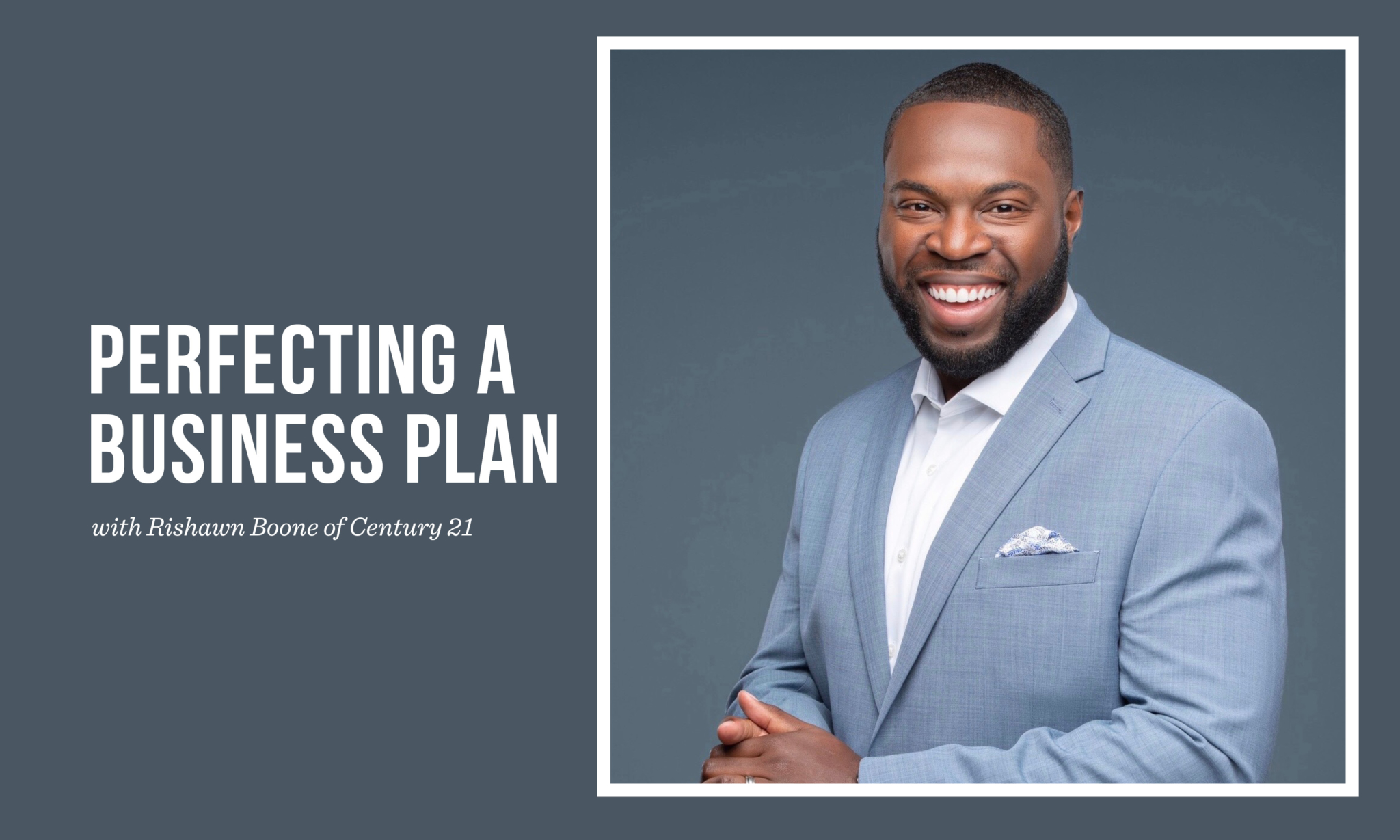
Rishawn Boone of Century 21 Affiliated in Joliet didn’t have a business plan when he began his real estate career.
“I thought that I’d get my real estate license, and then I’d be sitting in this office and people are going to send me clients and people are going to call and say, ‘Hey, I’m looking to sell my house,’” he said. “I was so naive.”
Boone held a full-time job in the healthcare field when he started out in real estate. He built up a clientele and did well as a part-time agent, even being named one of the Top 10 Agents for Client Satisfaction by the American Institute of Real Estate Professionals. Between his growing success in real estate and raising a family, he arrived at a point where he needed a plan in order to remain successful.
“I had to let healthcare go,” he said. “In order for me to do that, I had to have a plan and I had to have an exit strategy. And I had to have a plan on how I was going to grow my business.”
Boone now helps other agents develop their business plans. To him, a good plan starts with a vision and ends with a goal. Between the vision and the goal are the steps needed to achieve the goal. He writes his vision and goal in pen and the steps in pencil, giving the plan room to shift and change as needed. Boone also likes to include a realistic time frame to achieve his goals.
Not hitting the desired goal isn’t necessarily a sign of failure. It’s possible to have a successful year without hitting the desired mark. Falling short can be a learning experience.
“We’re humans, so when you don’t hit the goal or you fall short of the goal, let’s say that it doesn’t mean you fail,” he said. “It just means that you have to critique your plan to make sure you execute it for the next time.”
Boone learned over time that one agent’s business plan is not going to look like the plans their colleagues devise.
“As an agent, one of the best things that you can do is figure out who you are, what gifts, talents you have and what will be successful for you,” he said. “An agent who is 25 years old and new in the business, their business plan is going to look different than the agent who’s 70 years old, that’s been in the business forever.”
Boone likens trying to sell real estate without a business plan to attempting to drive to an unfamiliar place without knowing the way.
“There’s a possibility that you’ll eventually end up there, but there’s no telling how much time it’s going to take you to get there, how much time you wasted getting there, how many resources you wasted,” he said. “As opposed to getting in the car, plugging in the GPS and putting in the coordinates. That’s the difference between having a plan and not having a plan.”